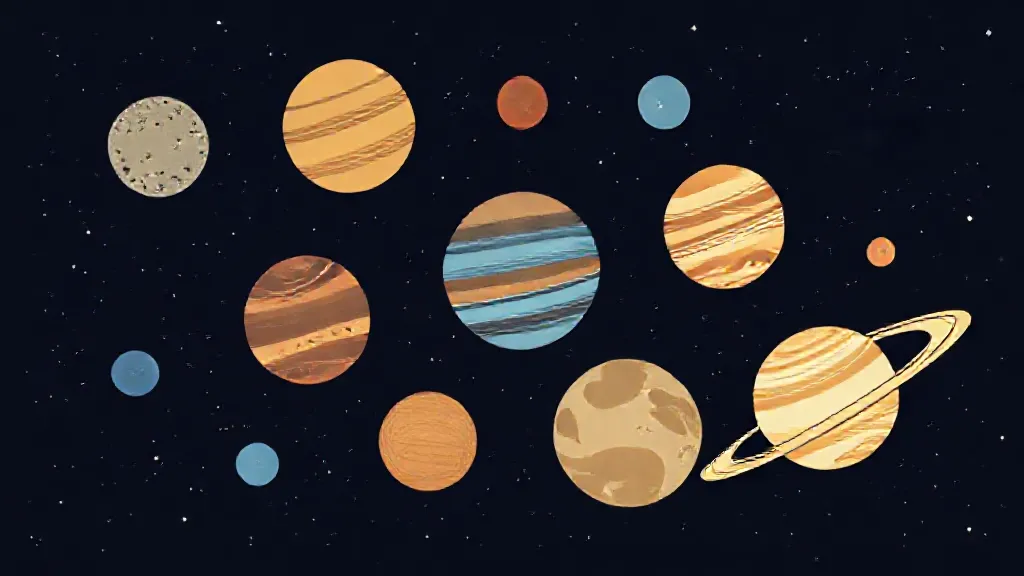The naming of planets is a fascinating topic that intertwines history, mythology, and science. The origins of planet names stretch back to ancient civilizations, where celestial bodies were often linked to deities and mythological figures. The names we use today are a reflection of those cultural beliefs, as well as the scientific advancements that have shaped our understanding of the cosmos.
Historical Roots of Planet Naming
The practice of naming planets can be traced back to the Babylonians, who were among the first to document celestial phenomena. They associated the five visible planets—Mercury, Venus, Mars, Jupiter, and Saturn—with their gods. For instance, Venus was named after the goddess of love and beauty, while Mars was linked to the god of war.
This tradition continued through the Greeks and Romans, who adopted and adapted these names, solidifying their place in the astronomical lexicon.
Influence of Mythology on Planet Names
Mythology plays a crucial role in the naming of celestial bodies. The Roman pantheon, for instance, heavily influenced the nomenclature of planets.
Jupiter, the king of the gods, represents the largest planet in our solar system, while Saturn, associated with agriculture and wealth, reflects the planet's historical significance in astronomy. The names we use today are not just arbitrary labels; they carry deep cultural meanings that have persisted through centuries.
The Role of Modern Astronomy
As astronomy progressed, particularly during the Renaissance, the naming conventions began to evolve.
The invention of the telescope allowed astronomers to discover new celestial bodies, leading to the need for new names. The International Astronomical Union (IAU), established in 1919, became the authoritative body responsible for naming celestial objects. Their guidelines ensure that names are standardized, avoiding confusion and maintaining a sense of order in the vastness of space.
Naming Exoplanets: A New Frontier
With the discovery of exoplanets—planets outside our solar system—the challenge of naming them has emerged. The IAU has initiated campaigns for the public to suggest names for these distant worlds, often drawing inspiration from mythology, culture, and even geography. This democratization of naming allows for a broader representation of human culture in the cosmos, reflecting our collective imagination and aspirations.
Cultural Significance of Planet Names
Planet names often reflect cultural values and historical significance. For instance, the name "Earth" derives from Old English and Germanic words meaning "ground" or "soil," emphasizing our connection to the planet we inhabit. In contrast, names like "Neptune," the Roman god of the sea, highlight humanity's ongoing fascination with water and its vital role in sustaining life.
Such names serve as a reminder of our cultural heritage and the stories we tell about the universe.
Planet Naming in the Digital Age
The rise of technology and digital platforms has transformed how we engage with astronomy. Social media campaigns and online voting have made it possible for people worldwide to participate in naming celestial bodies.
This shift not only fosters a sense of community among astronomy enthusiasts but also reinforces the idea that the cosmos belongs to everyone, transcending borders and cultures.
Future of Planetary Nomenclature
Looking ahead, the future of planetary naming will likely continue to evolve as our understanding of the universe expands. With advancements in space exploration and the potential for human colonization of other planets, new naming conventions may emerge.
The incorporation of diverse cultural perspectives will be essential in ensuring that the names we assign to celestial bodies reflect the rich tapestry of human experience and knowledge.
Conclusion: A Reflection of Humanity
In conclusion, the names of planets are more than mere labels; they are a reflection of humanity's history, culture, and scientific progress. From ancient mythological roots to modern naming conventions, each name carries a story that connects us to the cosmos.
As we continue to explore the universe, the names we choose will shape our understanding of our place within it, reminding us of the intricate relationship between humanity and the stars.
